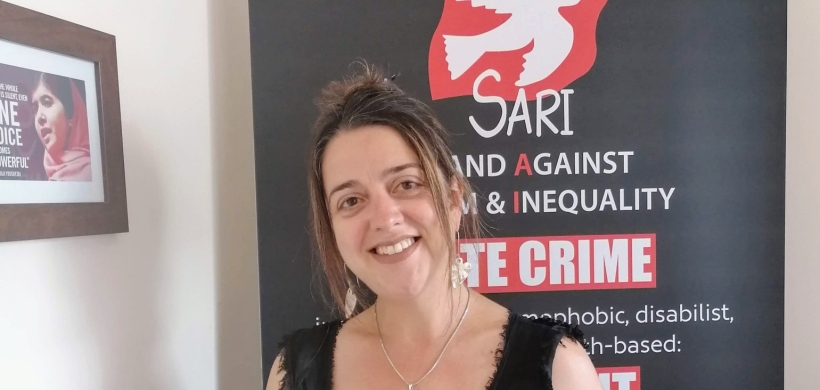Black History Month 2023 offers a significant opportunity to acknowledge and celebrate the achievements, the history, and contributions of black people.
As LiveWest celebrates Black History Month, it is highlighting the achievements of Alex Raikes MBE, a mixed-race woman who has spent her career tackling inequalities faced by black and minority ethnic people in their lives.
We are thrilled to have been a partner and ally of SARI for decades and Alex has spoken of her appreciation for the support we have provided to the charity.
Alex’s charity work with SARI
Starting as the first caseworker, just after the charity opened in 1991, Alex is now the Director of Stand Against Racism & Inequality (SARI) – a charity based in Bristol and operating throughout the Avon and Somerset area.
SARI is dedicated to supporting victims of racism and hate and its aim is to make sure anyone facing this form of abuse is given the support they need.
Alex started out her career working in residential social work for children with learning disabilities and emotional needs. But soon after graduating from Social Policy at the University of Bristol, she stumbled across an advert for a racial harassment caseworker at SARI and this was to change her future direction completely.
Alex said: “I remember thinking, I know what racial harassment is – because my family and I had gone through so much racism when I was young, but I had never imagined such a job existed. I thought I would love to do this and make sure others don’t go through what I did. I didn’t think I would get the job, but I did and that was the beginning. I haven't looked back since then.
“SARI was one of the first pioneers of hate crime casework systems and multi-agency working for dealing with racism and hate crime. We believed that you have to work with authorities because that's how you're going to deal with hate crime effectively. Victims need that coordinated approach and they need negotiation and advocacy.
"Something else that’s really important about our charity is that so many of our Board of trustees and staff have lived experience of racism and hate crime – they’ve been through it – so this makes them passionate about our cause."
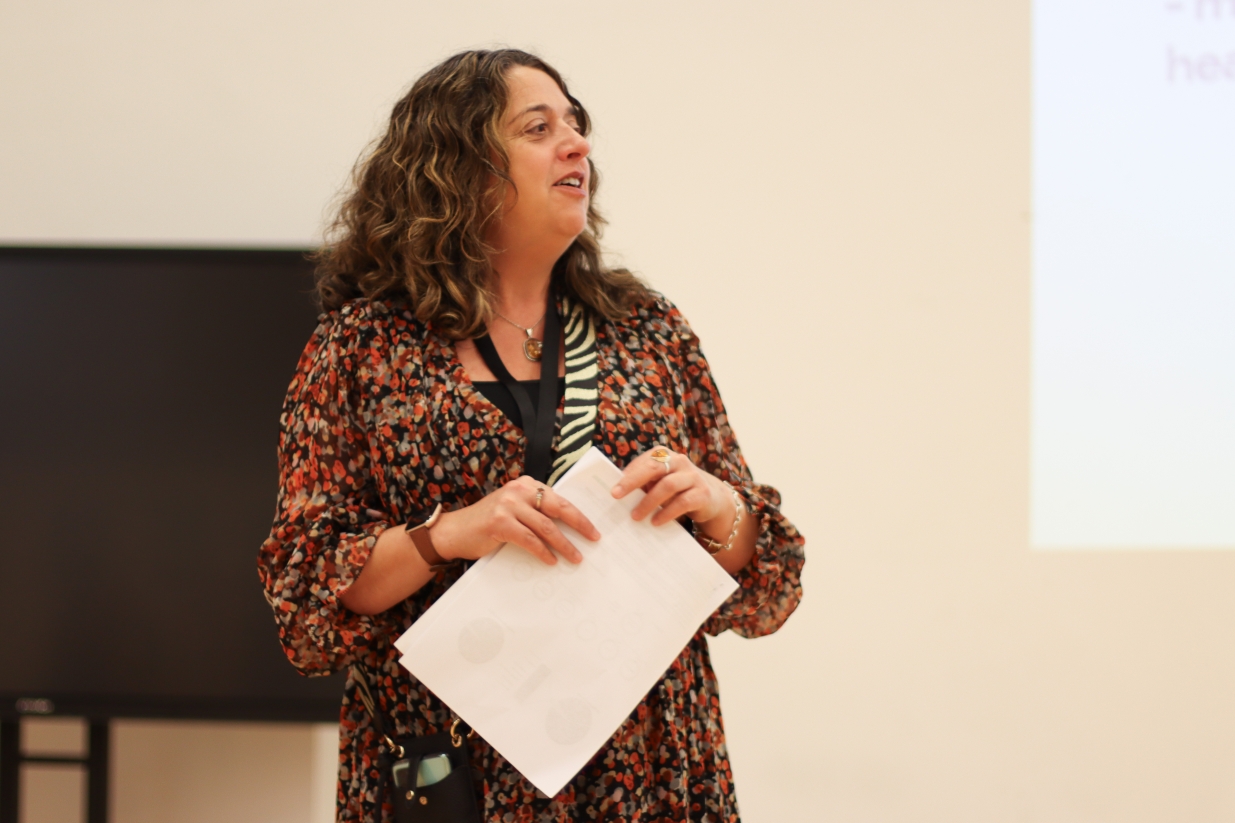
When Alex started at SARI, she joined hands with SARI’s first Director Batook Pandya, who sadly passed away in 2014. She admires and credits Batook for being an inspirational leader who was dedicated to promoting race equality and who taught her so much along the way. When Batook passed away, Alex and Agnes Yeomans (who had also been in SARI since 1991) became co-directors of SARI and took it forward to the next leg of its journey.
“Losing Batook was a great loss for us all, but we knew we had to take his legacy forward” Alex said.
“As a minority ethnic woman, fairness, equality and cohesion are everything – they are fundamental to any successful society.
“I remember so many clients who I have been privileged to support along the way and now I’m seeing their children and grandchildren come to SARI. I’m sad that we are still dealing with hate crime generations later, but I’m proud that SARI has come to be respected and seen as a safe place to come for help by so many communities.”
LiveWest working with SARI
LiveWest has been a partner and ally of SARI for decades and Alex appreciates the support this has provided for the charity.
She said: “LiveWest has just always been there for us. You are one of our longest-standing housing partners. You always thought we were an important organisation to work with and always wanted to take hate crime seriously.
"You have also accepted it when SARI has challenged you or when we feel you could have done things better – you have let us be your critical friend. You've been accessible to us at all levels of the organisation. That's really important for SARI. It is agencies like LiveWest who help us survive and we wish we had more organisations supporting us the way LiveWest has.
“I'm proud that LiveWest is discussing Black History Month and recognising it. But also, it’s important that you don’t just talk about these topics in Black History Month, people need to talk about it all year round and celebrate black history and black contributions to our world all year round.
“Otherwise celebrating calendar events are a good way of ensuring we don't forget to recognise different communities’ issues and inequalities.”
Juggling a professional career, having four sons and SARI achievements
Aside from her professional career with the charity, Alex is proud of bringing up her four sons as a single mum. When her children were young, she took a step back for a few years and worked in fundraising and development before becoming SARI’s Assistant Director a few years later.
In 2012, SARI decided to widen its charitable objectives to support victims of all types of hate crime. This followed the passing of the Single Equality Act 2010 and a movement to a more unified approach to equalities issues and the term hate crime was introduced as a concept.
SARI remained determined to still be a specialist for dealing with racism and remains black and minority ethnic led to this day, but knew it could make a difference to more communities impacted by hate crime.
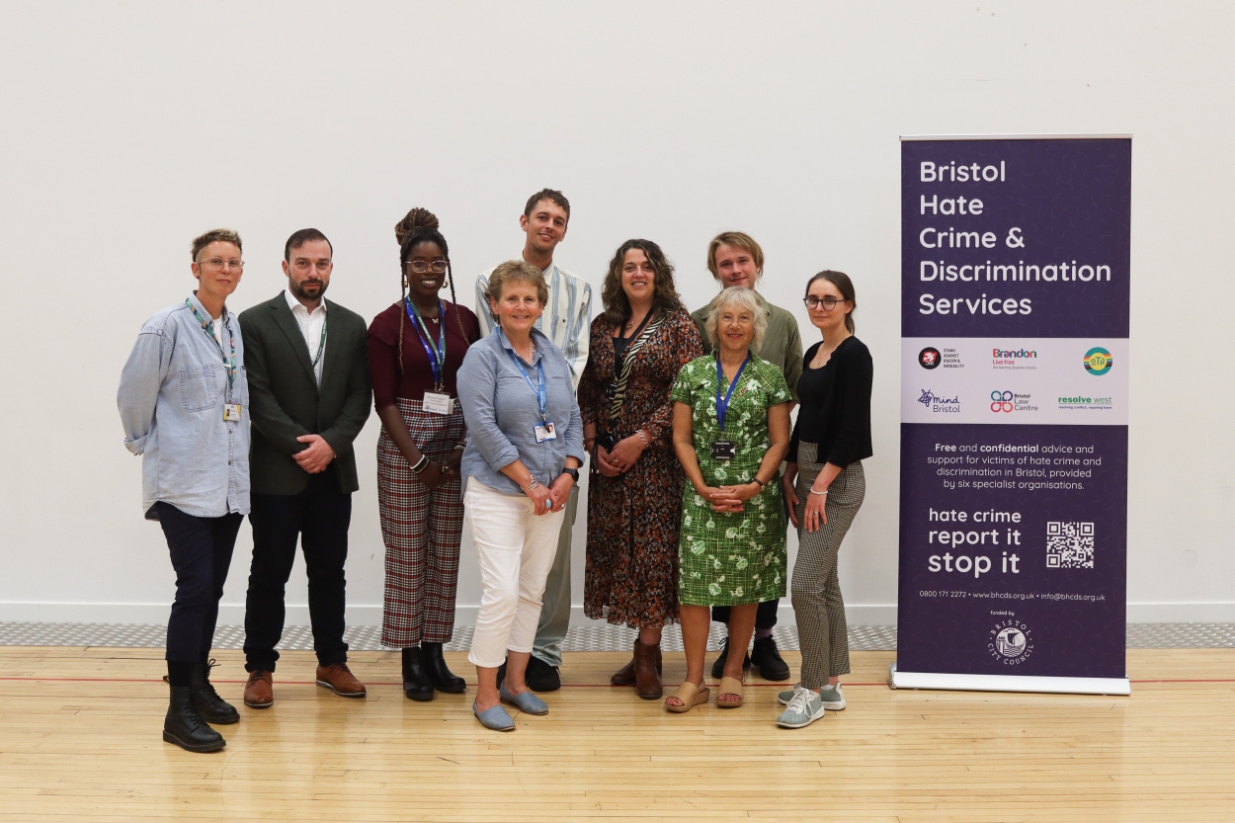
Alex commented: “However, in making this change we recognised that we needed specialist support and understanding to deal with the other types of hate crime such as disability hate crime and LGBTQ+ related hate crime.
"Up until then we had not officially collaborated when it came to delivery of services. But when we decided to go ahead and widen our charity objectives, we went into partnership with specialist disability and LGBTQ+ charities such as Brandon Trust, Bristol Mind, the Diversity Trust, Off The Record Freedom Project and SWAN. They are all helping us deliver hate crime services.
"Now, we collaborate all the time. This is particularly beneficial when people have more than one of these identities (also known as protected characteristics) if they are black and gay or Asian and disabled – in reality most people don’t fit neatly in one box – they are intersectional.
“I’ve seen society attitudes change in the UK. Now most people recognise that hate crime and racism is wrong. I think a significant proportion of people recognise the value brought by diversity and they welcome it and respect it. And more and more families now are diverse.”
Childhood and heritage
Having grown up in a mixed-race family in an area that had very few ethnic minority families, Alex’s upbringing came with racism and bullying which is something that has motivated her to do the work she has done.
She is very proud of her heritage, but she has faced barriers because of it. Her mum came from a privileged, white British family who, when she went on holiday to Iran at just 17, fell for a local Kurdish Iranian man.
After announcing she wanted to get married, Alex’s mum was forced back to the UK by her parents as she was under-age in those days and not allowed to marry without their permission.
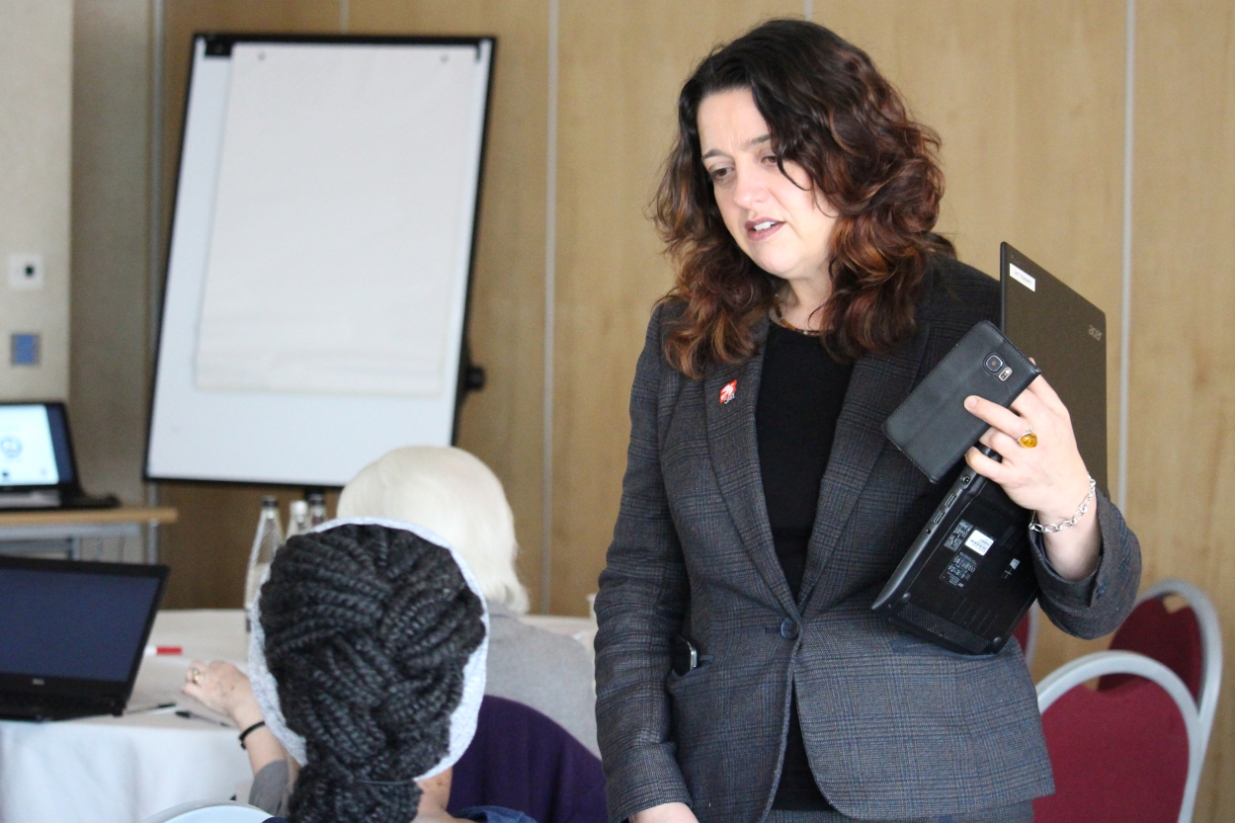
Alex added: “With loads of persuasion, my English grandparents sponsored my father to come to the UK but he was also a refugee as his community were being targeted in Iran at that time.
“My mum was only 18 when she married my dad, and then she had me and my brother by the time she was 21. Neither my Iranian nor my English family really accepted my parents getting married.
“My mum was suddenly on her own in a mixed-race marriage in an area where they were the only minority ethnic family, and it was really difficult – she wasn’t used to coping without help never mind the discrimination and bias she now faced.
“We were a mixed race, mixed class, mixed up family living in a predominantly white working-class area. You can imagine we did not fit in - we were really different.
“All my school friends were from tough backgrounds and so was I, but for different reasons. The ignorance and the levels of racism were extreme and there was bullying basically every single day for me at school.
“Not a day would go past without some kind of racial abuse and every bus journey was an argument about why we should be allowed to stay in this country. Even though I’m mixed and even though I’m light this still happened when they knew the family I came from. My brother and dad were both of colour and stood out more than me – so for them it was even worse. They faced physical attacks.
“They wanted to know where I came from and what my heritage was. I argued, negotiated, and educated until people left me alone. In those days, you didn’t name racism, you just lived with it.”
Alex’s accolades
Alex was appointed as High Sheriff of Bristol in 2022 and she saw this as a special achievement because very few High Sheriffs are ethnic minority and from backgrounds like hers - but this is slowly improving.
Alex commented: “I represent the race equality and human rights charitable sector and I’m also known for challenging authorities, so I came in as a very different High Sheriff – one that isn’t part of the institution. It was a very proud moment, and the year was amazing though it was difficult juggling this with a full-time job. Very few High Sheriffs work full time most are retired.
All her accolades have come from her work relating to SARI. Alex received an MBE in 2009 for contributing to race relations in Bristol, awarded an honorary doctorate from UWE and made a Deputy Lieutenant of Bristol in 2019 and most recently, in July 2023, given an honorary doctorate from Bristol University.
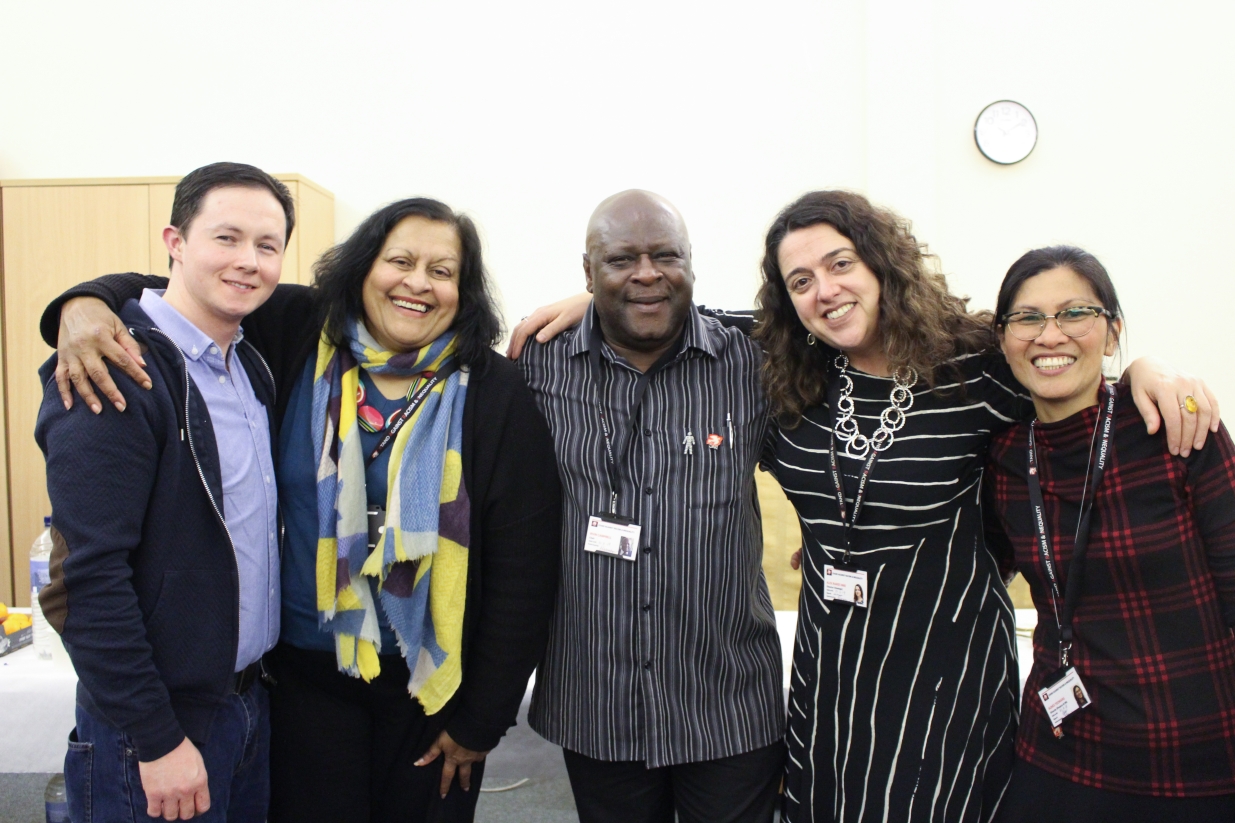
Looking back, Alex remarked: “When I got my honorary doctorate this year from Bristol University, it was the most amazing feeling. I went back into the Wills Memorial Building where I did my finals and graduated in 1991. It was amazing to be given that honour in front of thousands of students by the department that changed my life so many years later.
“It is the first place I felt safe with my full identity – I know a lot of people don’t when they go to university, but I was very lucky.
"My department was very diverse, and it was an unusual course for Bristol University in that we had students who had made it there from all sorts of backgrounds and via non-traditional educational routes. We also were one of the few degrees where you had mature students at that time. At the same time, it wasn’t an easy course to get on either – you had to be clever.”
“We all went on to be changemakers in our own way. We wanted to promote change for people who didn’t have a voice or power. When I was younger, I never had a voice. I was a very quiet kid, but as I have gained a voice, I wanted to use it for others.”
